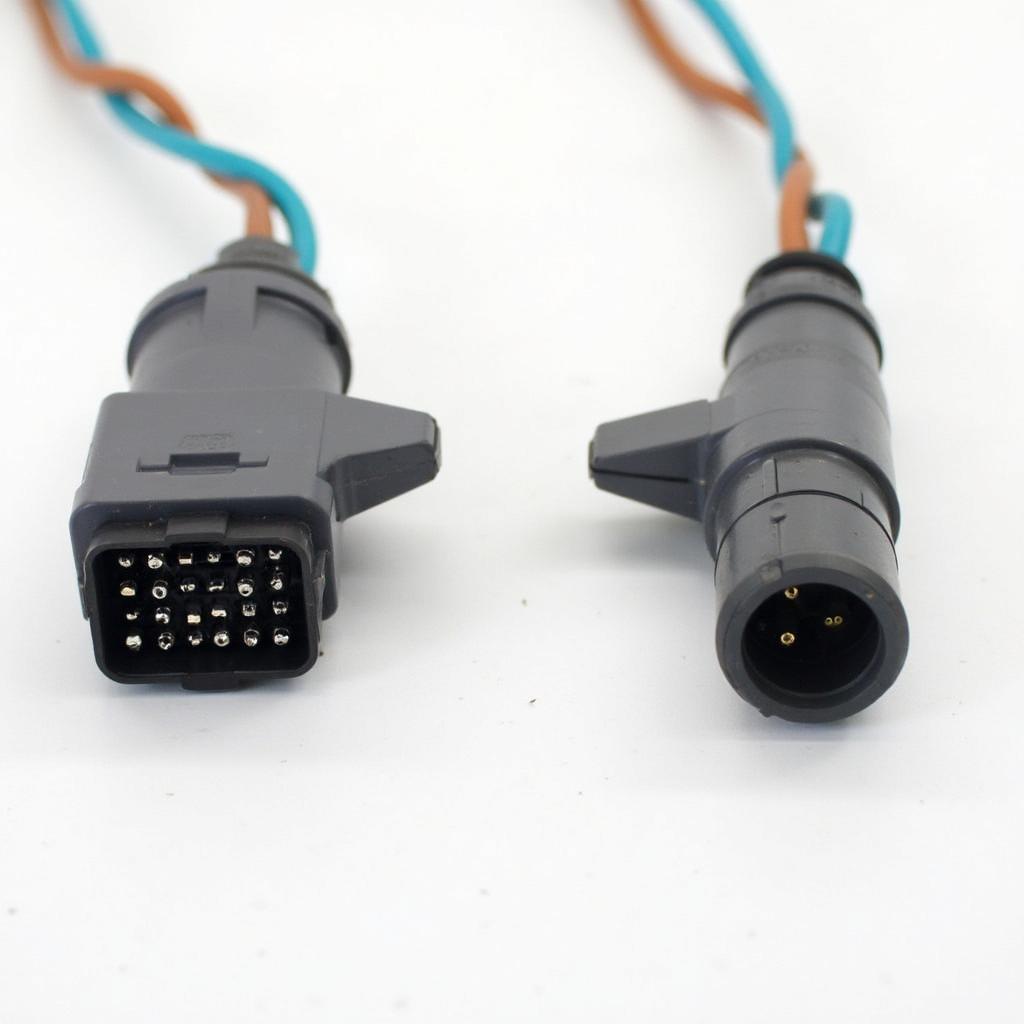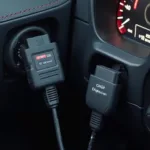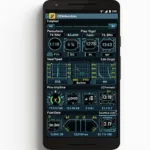Knowing whether your Honda uses OBD1 or OBD2 fuel injectors is crucial for diagnostics and repairs. This seemingly small detail can significantly impact how you approach troubleshooting engine issues and select the right replacement parts. Mismatching OBD systems can lead to compatibility problems and ultimately, engine malfunction. This guide will help you accurately identify the type of fuel injectors in your Honda.
Identifying Your Honda’s OBD System
The easiest way to distinguish between OBD1 and OBD2 is by checking the diagnostic port. OBD1 ports are typically located under the driver’s side dash and vary in appearance depending on the Honda model. They can be single or multi-pin connectors. OBD2 ports, on the other hand, are standardized 16-pin trapezoidal connectors usually located near the steering column. The presence of an OBD2 port almost guarantees the car has an OBD2 system, including OBD2 fuel injectors.
Using the Model Year as a Guide
Generally, Hondas manufactured before 1996 in the US market use OBD1, while those produced from 1996 onwards utilize OBD2. However, there are some exceptions, especially with certain models transitioning between the two systems. Therefore, relying solely on the model year isn’t foolproof. Consulting your vehicle’s owner’s manual or a reliable online database is recommended for precise identification.
Examining the Fuel Injectors Directly
A visual inspection of the fuel injectors themselves can provide definitive confirmation. OBD1 injectors often have a more simplistic design with a single, rectangular electrical connector. OBD2 injectors typically feature a more complex, rounded connector with multiple pins. The wiring harness connected to the injectors also differs between the two systems.
What if I Can’t Access the Injectors Easily?
If direct access is difficult, you can check the part numbers on your existing injectors. Cross-referencing these numbers with a parts catalog will reveal the OBD system compatibility. You can also consult your honda obd2 engine codes for further insight.
Understanding the Differences Between OBD1 and OBD2 Fuel Injectors
While both systems serve the same fundamental purpose of delivering fuel to the engine, there are key differences. OBD2 injectors are generally more precise and controlled by a more sophisticated computer system. This allows for finer fuel management, improved emissions control, and better fuel efficiency. OBD1 injectors, though simpler, are often more durable and easier to service.
“Understanding the nuances between OBD systems is paramount for accurate diagnostics,” says John Davis, a veteran automotive technician with over 25 years of experience. “Misdiagnosing an OBD1 system as OBD2, or vice versa, can lead to unnecessary part replacements and wasted time.”
Conclusion
Determining whether your Honda uses OBD1 or OBD2 fuel injectors is essential for proper maintenance and repair. By checking the diagnostic port, the model year, and the injectors themselves, you can accurately identify the system and avoid compatibility issues. Remember, using the correct parts and diagnostic procedures will save you time and money in the long run, ensuring your Honda runs smoothly.
“Always consult your vehicle’s specific documentation or a qualified technician when in doubt,” adds Davis. “Accurate identification is the first step towards a successful repair.” Knowing how to tell OBD1 from OBD2 Honda fuel injectors is a valuable skill for any Honda owner.
FAQ
-
Can I use OBD2 injectors in an OBD1 car? No, they are not directly interchangeable.
-
Are OBD2 injectors more reliable than OBD1 injectors? Both have their strengths and weaknesses. OBD2 injectors offer more precise fuel control, while OBD1 injectors are often considered more durable.
-
Where can I find the diagnostic port on my Honda? Check your owner’s manual or search online for your specific model.
-
Do I need a special tool to identify my Honda’s OBD system? Not necessarily. Visual inspection and checking the diagnostic port are usually sufficient.
-
What should I do if I’m unsure about my Honda’s OBD system? Consult a qualified mechanic or refer to your vehicle’s service manual.
-
Can I convert my OBD1 Honda to OBD2? While possible, it’s a complex process and may not be worth the cost and effort.
-
Where can I find reliable information about Honda OBD systems? Online forums, service manuals, and reputable automotive websites can provide valuable information.
For further information regarding Honda OBD systems, check out our article on honda obd2 engine codes.
Need help? Contact us via WhatsApp: +1(641)206-8880, Email: [email protected] or visit us at 789 Elm Street, San Francisco, CA 94102, USA. We have a 24/7 customer support team ready to assist you.


